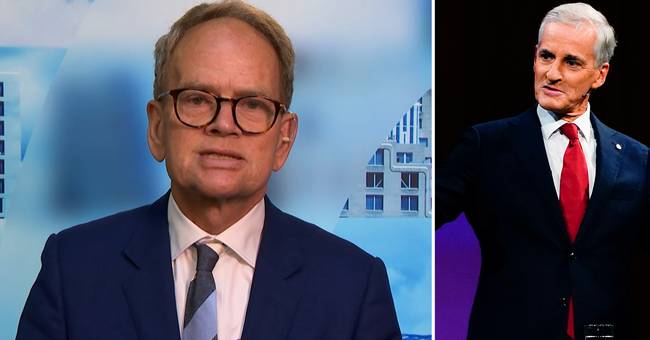The opinion polls ahead of tomorrow's parliamentary elections point to a clear lead for the Social Democratic Labor Party's Jonas Gahr Støre.
This means a possible change of government in Norway.
Headwind in other countries
If you look at Germany, which is facing its federal election on September 26, the Social Democratic SDP is making strong progress.
For the first time since 2006, the party now leads the opinion polls.
- In Germany, a clear left-wing wind can be seen, but a general one in Europe is not really discernible, says SVT's EU reporter Christoffer Wendick.
The main candidates for the post of Chancellor after Angela Merkel (CDU) - Olaf Scholz (SPD), Armin Laschet (CDU) and Annalena Baerbock (The Greens) - will meet on Sunday evening in a debate.
In France, Italy, Spain and Austria, however, Social Democratic parties are most opposed.
- If you look west towards France, for example, it is the right and the center that dominate, it was seen not least in the regional elections that were held during the summer, says Christoffer Wendick.
"Marginal better"
The Social Democrats are not strengthening their positions in the Netherlands, Finland or Sweden either, states Jonas Hinnfors, professor of political science at the University of Gothenburg.
Hinnfors believes that it is a bit hasty to talk about left-wing winds across Europe.
Rather, it may be a "temporary shift" or an expression of fatigue in the existing government alternatives than an ideological shift of some kind.
- I would like to say no.
It is obvious that the Social Democrats in Germany have been doing well lately, but they are really only back to where they were ten years ago.
And the left-wing party Die Linke is doing pretty badly.
If you add up their percentage points, it is only marginally better than the last election, he says to SVT News.
- If you include the small parties and the Greens, it seems that it will be a left-wing majority.
But it is quite mixed in its composition.
Specific heart issues
When it comes to the SPD's success, it may also be possible to attribute some of it to party leader Olaf Scholz.
- Scholz appears by many to be the least bad of the three.
Then the question that many voters rank most now is social justice, rents, pensions and wages, and these are issues that SDP is pushing hard in this election, says SVT's Christoffer Wendick.
When it comes to forming a government in the event of a change of power in Norway, the Social Democrats face another challenge.
- The Labor Party's voters are fragmented, says Magnus Takvam, political commentator on Norwegian NRK.
- Many want to vote for the party that pulls the Labor Party most in its direction, and then vote for left-wing parties or environmental parties to influence the government.
Watch a longer interview with Magnus Takvam in Agenda at 21.15 on SVT2 or on SVT Play

